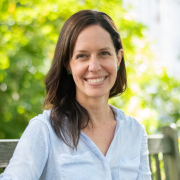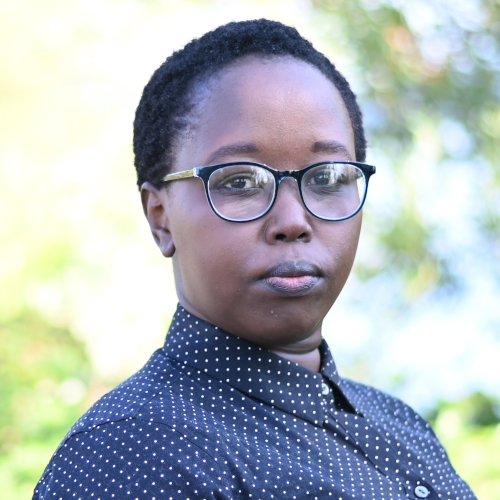Two faculty-led research projects recently received grants from the iSchool to help them further their work and create lasting impact with the help of the Strategic Research Fund (SRF).
The SRF is a funding opportunity that supports projects that align with the iSchool’s strategic vision. This year the iSchool selected two projects — one led by Alexis Hiniker and one led by Lindah Kotut.

The iSchool selected Hiniker’s “SleepStreak: Redesigning the Smartphone to Support Healthy Sleep Habits” as a recipient. Hiniker and her team are exploring whether there is a way to create a phone ecosystem that encourages use that leads to better sleep rather than habits that hurt user health.
Hiniker and Ph.D student Longjie Guo began their work on SleepStreak after conducting a study that collected 100,000 screenshots of people’s phone use and asked participants to annotate what they appreciated and regretted about their screen time.
“[We found that] when phone use got in the way of people's sleep, they would really regret it,” Hiniker said. “It didn't matter what they were doing on their phone, it's just that sleep comes first.”
While apps are typically designed to capture user attention and lock them into the experience, SleepStreak is exploring design patterns that encourage users to wind down before sleep. Unlike meditation apps or softwares that create app time-limits for users, SleepStreak is looking to create interventions that help users break out of infinite scrolling behavior.
The SRF enables Guo to continue the research over the summer and focus on developing the project to its fullest potential.
“It's really good to know that the iSchool finds this work interesting, and I'm excited to keep pursuing this line of work,” Guo said.
Meanwhile, Kotut is working with Indigenous communities in the Puget Sound region on her project, “Grassroots and Indigenous Guidance Towards AI for Climate.”

Through her research, Kotut is hoping to highlight Indigenous values toward climate change and sustainability. She hopes bringing their knowledge will allow her team to design technology that represents the voices of the communities that understand the land in a way that others cannot.
“These are the Indigenous communities, they have lived on the land and have centuries of knowledge of the land,” she said. “They have an ethos of how to interact with the environment over time.”
Ph.D. student Amelia Dogan is collaborating with Kotut. Dogan is on the ground working with the community partners and understanding how the project can make an actual impact on people's lives.
“She's training community partners in using mapping tools,” Kotut said. “She can provide a service to these particular communities while at the same time learning from them, making sure that [the community’s ideas] are woven into how she thinks about technology and how she critiques and develops technology.”
Kotut is also collaborating with local grassroots organizations that center Indigenous values in their initiatives. She explained that they wanted to involve community organizations as they are working to ensure awareness and representation for these communities.
While this is only a one-year project focusing on the Puget Sound region, Kotut wants to explore broader Indigenous community relationships with the environment. The diversity of North America’s landscape means that different Indigenous communities have rich knowledge of their local land, a relationship Kotut wants to explore further.
“I think the potential is to amplify community-based knowledge across the world,” she said.
At a time when research funding is uncertain, the SRF is allowing the project to continue and hopefully one day achieve Kotut’s goal of expanding outside of the Puget Sound region. It also is helping Kotut and her team obtain their preliminary data and work into the summer and pursue a larger research grant in the future.